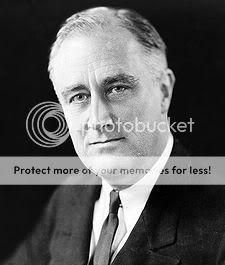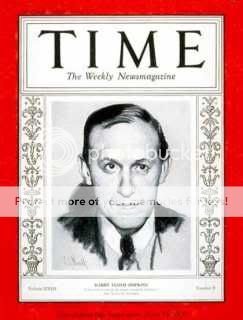A Great Society
January 1, 1936
Washington, DC
Treasury Secretary Henry Morgenthau, Jr.
Secretary of the Treasury Henry Morgenthau, Jr., son of a prominent diplomat, an expert in agriculture by training and experience, and unlikely economist rose from his seat just to Roosevelt's right. This place of honor was earned by years of friendship and loyal service.
"As part of the emergency appropriations contained for the Works Progress Administration in the last budget passed by Congress, there is a provision allowing for the President to embark upon construction projects in the public's interest. It has been determined that the most efficient use of these funds, to generate long-term prosperity and wealth would be to build factories in economically depressed areas. These factories will be constructed with specific purposes in mind - some will be optimized for the production of aircraft to be used in rural airmail service for example - and equipped with the most modern equipment to achieve this purpose. The initial capital expenditures will be borne by the federal government from the WPA budget and the buildings and equipment will then be leased to interested private entities at a rate designed to recoup the cost within 20 years. This is a very favorable rent agreement for the concerned firms, and we anticipate many applicants. Additional requirements regarding the pay and benefits accorded to workers shall be attached to the lease to ensure good jobs become available for as many as possible out of this program."
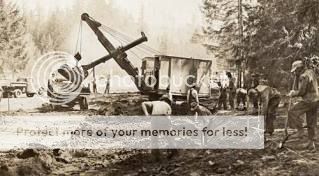
WPA Employees Working on an Infrastructure Improvement Project.
"Additionally, there are many parts of the country where it is simply impossible to get from one point to the next in a safe manner. Vital infrastructure such as paved roads, railway right-of-way, and air mail capable landing fields are lacking. In order for any future economic development, and indeed for the quality of life of the citizens, it is necessary to expand these vital services. States shall receive grants of money from the federal government to embark upon needed infrastructure improvement projects. In turn they shall contract a percentage of WPA labor to complete the tasks. WPA workers will be paid at the going rate in the area and receive on the job training that will enable them to transition to a civilian job as soon as is practicable. I would ask that Harry, whose agency will be running the program to share some of the finer points of execution with you."
Harry Hopkins, WPA Director and Time Magazine Feature
Harry Hopkins, was not a cabinet member in the sense that he headed an executive department of the United States, but as head of the Works Progress Administration, his presence was a vital one. A fine product of the Midwest and it's tradition of fine education, this Grinnell educated social worker had become another trusted confidant of Roosevelt and this project was his time to shine.
"Thank you, Henry. I would like to first address the infrastructure improvement plan. There are two steps to this plan. The first is to develop basic infrastructure in areas where it is lacking. This is being done in three areas of the nation that are the most under-developed and lacking in state funding to achieve needed advances. These are the vast expanses of the American Southwest and Northwest. Money is being directed to California, Arizona, New Mexico and Texas to improve infrastructure in desert areas. Additional funds are being directed to Washington, Idaho, and Wyoming to build up the capability to deal with the equally harsh terrain and challenging conditions that exist in the north of the country. The third area that is being targeted is Appalachia. Up and down the Appalachian mountains live some of the poorest of our poor and exists some of the worst infrastructure in America. Daniel Boone blazed a path across those mountains in 1775, and I do not believe it has been touched since. If any meaningful growth is to occur in these regions, the infrastructure must be improved. Therefore, Georgia, Tennessee, South Carolina, North Carolina, Virginia, Kentucky , and West Virginia will all receive funds to improve infrastructure in these mountainous areas. The gray shaded areas on one of my maps are the areas that will be targeted."
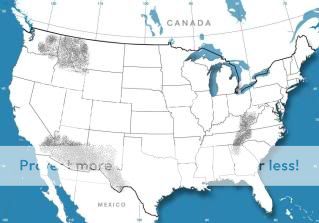
Ares Where Badly Needed Infrastructure Improvements are Being Conducted
"The second stage is to develop advanced infrastructure in the areas where it can stimulate the most economic growth. Accordingly, a dense network of super-highways, capable of handling large quantities of motor traffic, and high volume rail lines, such as that that already exists from Boston to New York to Philadelphia will be extended to the great centers of American Industry; Pittsburgh, Cleveland, Detroit, Chicago, and Milwaukee. This interstate transport system will engender the development of future economic growth and promote trade between the regions. Secondary centers such as Fort Wayne, Gary, Akron, and Toledo will be included in this net and future expansion to Minneapolis, Des Moines, and Indianapolis, and then south-ward and west-ward are foreseeable. If you look at the map I have attached, the primary cities are marked in green, secondary in yellow, and future expansion in red. The route is outlined in green and future route in red. We expect to see initial results from these projects in November of this year and final completion in October of next, barring any unforeseen circumstances."
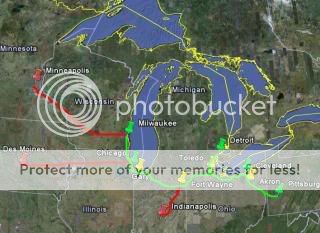
A New Interstate System of High-Capacity Rail and Road Links for the Industrial Heartland
"As Henry explained factories shall be built in currently economically depressed areas. They have been selected on basis of current economic status, ease of access - to promote easy shipment of goods produced - and proximity to larger, more well-developed areas, from which talent and manpower may be drawn. The sites selected for the first batch of construction are: Madison, Wisconsin, Lafayette, Louisiana, Waco, Texas, Sunnyvale, California, and Savannah, Georgia. We expect these factories to be completed in November, and will look for new candidate areas at that time. You can see the locations of these cities on my final map."
Locations of Federally Financed Factories
Hopkins sat down and looked towards to the head of the table and the President, who began to speak again.
"Gentlemen, I thank you; your presentation has been most enlightening. I expect the rest of you to consider how your organizations can help with these programs and to submit proposals within two weeks. I have decided to name this program "The Great Society". We are done with The New Deal. The New Deal has taught Americans they can rely upon their government to support their basic needs. The time for the government merely supporting basic needs has passed. It is now time for us to build up the people into a Great Society where much is expected and extraordinary becomes the norm. I believe you all agree with my vision and will use this new year, full of promise, to build up this society to a level of prosperity, and tranquility that this world has never seen before. May we all trust in God that it shall become so."


